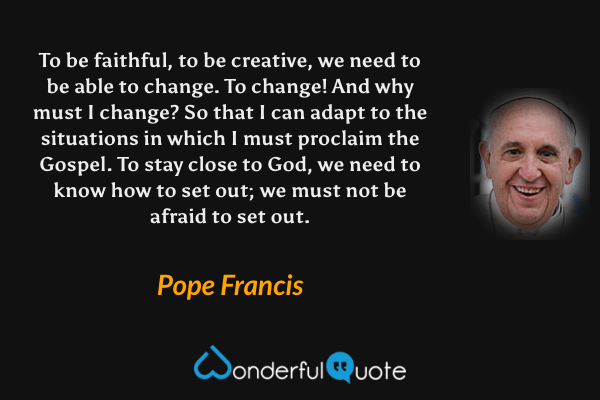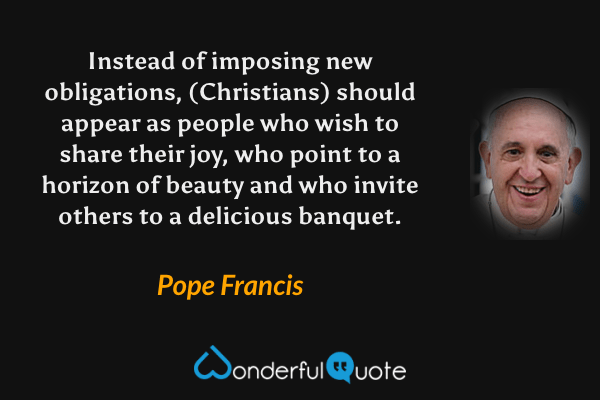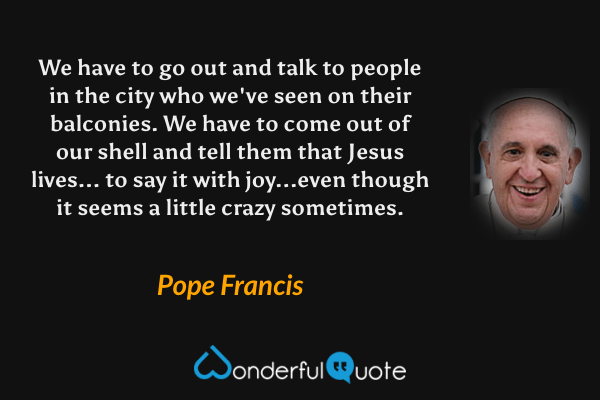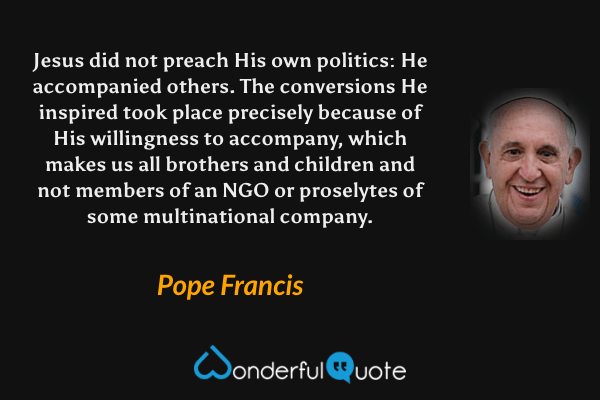Evangelism Quotes
Most popular evangelism quotes

To be faithful, to be creative, we need to be able to change. To change! And why must I change? So that I can adapt to the situations in which I must proclaim the Gospel. To stay close to God, we need to know how to set out; we must not be afraid to set out.

Instead of imposing new obligations, (Christians) should appear as people who wish to share their joy, who point to a horizon of beauty and who invite others to a delicious banquet.

We have to go out and talk to people in the city who we've seen on their balconies. We have to come out of our shell and tell them that Jesus lives... to say it with joy...even though it seems a little crazy sometimes.

The massive migratory movements of our world and the reality of religious diversity, especially that which originates in the East, present a delicate challenge to evangelization with respect to the encounter between different cultures and interreligious dialogue.

Jesus did not preach His own politics: He accompanied others. The conversions He inspired took place precisely because of His willingness to accompany, which makes us all brothers and children and not members of an NGO or proselytes of some multinational company.

Jesus teaches us another way. Go out! Go out! Share your testimony, go out and interact with your brothers, go out and share, go out and ask! Become the Word in body as well as in spirit.
At an expense trifling indeed, compared to what she frequently spends upon unprofitable contests, she might place the moral world on a new foundation, and to rise the pinnacle of moral glory.

There is a story, which is fairly well known, about when the missionaries came to Africa. They had the Bible and we, the natives, had the land. They said 'Let us pray,' and we dutifully shut our eyes. When we opened them, why, they now had the land and we had the Bible.

Two things in particular seem to have put paid to this easy coexistence. One was the rise of British power: in a few years the British had defeated not only the French but also all their Indian rivals; in a manner not unlike the Americans after the fall of the Berlin Wall, the changed balance of power quickly led to an attitude of undisguised imperial arrogance. The other was the ascendancy of Evangelical Christianity, and the profound change in attitudes that this brought about.

India in the 1840s and 1850s was slowly filling with pious British Evangelicals who wanted not just to rule and administer India, but also to redeem and improve it.

It was not the British per se, so much as specific groups with a specific imperial agenda — namely the Evangelicals and Utilitarians — who ushered in the most obnoxious phase of colonialism, a change which adversely affected the White Mughals as much as it did the Great Mughals.


